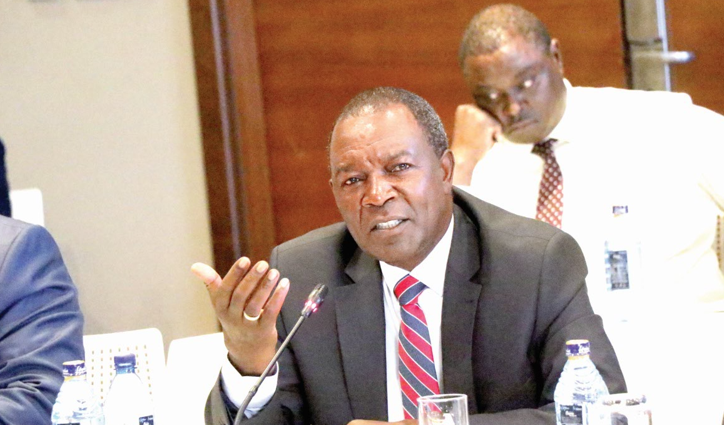What Finance Act ruling means for the State

The government will be hoping the Court of Appeal today, for the second time, will throw out a petition challenging the constitutionality of the Finance Act 2023 to allow it to continue collecting extra revenues smoothly.
The new tax law, primarily viewed as hard-hitting to households and businesses, seeks to collect a staggering Sh2.6 trillion in ordinary taxes for the current financial year to support core obligations like supporting the government’s growth agenda and paying off debts.
Should the court fail to throw out the petition, the only setback to the Kenya Kwanza administration will be the extra Sh460 billion in revenue targeted through the new tax measures under contention.
The National Treasury tasked the Kenya Revenue Authority (KRA) to collect Sh2.6 trillion in ordinary revenue for 2023/24, which is Sh460 billion more compared to the Sh2.14 trillion target in the previous year that ended in June 2023.
“It will only affect on the incremental bit. The Finance Act just affects very few sections, and effectively, the suspension will not stop the government from collecting the revenue.
Those amendments that are carried in the current Finance Act are the only ones which will not be effective,” says Caleb Mokaya, Finance and Tax committee member at the Institute of Certified Public Accountants of Kenya (ICPAK).
Among the tax proposals likely to be scrapped if the court rule in favour of the petitioner includes the highly-disputed housing levy set at 1.5 per cent of every worker’s gross monthly salary.
Further at risk is the income tax amendment, which introduced higher tax bands of 35 per cent for high-income earners with salary exceeding Sh800,000 per month. Those earning between Sh500,000 and Sh800,00 are now being deducted Pay-As-You-Earn (PAYE) at a 32.5 per cent rate.
But one of the most significant tax policies whose abolishment will hit the government revenue ambition is the 16 per cent value-added tax (VAT) on fuel that risks being revised downwards to the previous eight per cent rate.
Collect taxes
“The Act 2023 in itself is not a standalone Act. So, the provisions in those substantive Acts will continue to be in force, and the government will continue to collect taxes as if the Finance Act (2023) never existed. The government was collecting tax prior to the current Finance Act,” adds Mokaya.
Other fresh amendments in the Act are a 17.5 per cent Export and Investment Promotion Levy, a 10 per cent export levy, and a three per cent Digital Service Tax (DST). KRA defines the digital service tax as anything identifiable that is created and stored digitally and has or provides value.
These three levies became effective this month in the second round of the Act’s implementation, affecting several products, including steel, cement, digital economy, paper, entertainers, and content creators.
The taxes have the potential to increase the cost of production and reduce the profits for those operating. KRA has been collecting some of the taxes since July despite the court injunctions.
“The abolishing will have a significant impact on revenue depending on which sections are abolished,” says Robert Waweru, tax policy expert at Ichiban Tax and Advisory firm.
The High Court had on June 30 temporarily suspended the implementation of the Finance Act, 2023, which doubled the VAT, but the Energy and Petroleum Regulatory Authority (Epra) still went ahead to affect the tax.
The Court of Appeal has since allowed implementation of the Act, but Busia Senator Okiya Omtatah appealed the decision, which now awaits final determination today.
Treasury Cabinet Secretary Njuguna Ndungu disclosed that the government was losing about Sh500 million a day due to the initial temporary court injunction.
But Kenyans and businesses are also at risk of being handed a blow by the suspension of the Act, especially regarding sections touching on the State’s attempts to reduce the cost of cooking gas and offer tax reliefs.
For instance, the one-year amnesty relief on interest and penalties up to December 2022 might be affected if the section is scrapped under the tax procedure.











